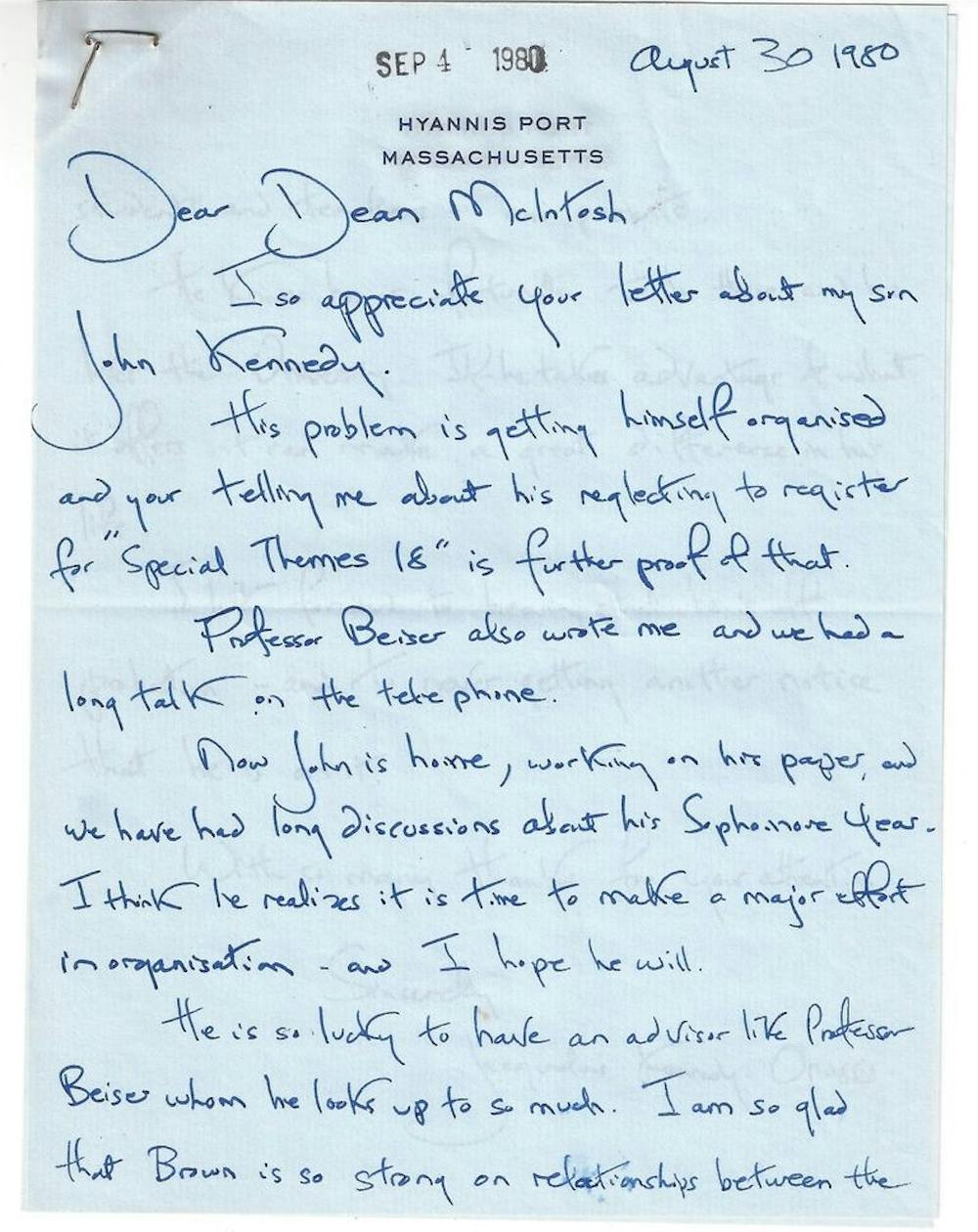The University says that the application of John F. Kennedy Jr. ’83 — recently posted for sale online — was stolen, and its General Counsel is actively working to secure its return.
Online seller Gary Zimet posted the application documents for sale at $85,000 on his website, “Moments in Time,” which buys and sells rare and historical documents.
The University discovered the theft of the documents through news coverage about the sale, said Director of News and Editorial Development Brian Clark. Legal counsel reached out to the seller and made clear that the application materials were stolen from Brown and remain University property, Clark said. He added that the University hopes to prevent the sale of the documents and secure Zimet’s cooperation.
“Family-related material of JFK is enormously desirable … especially with Jackie showing how much she was involved,” Zimet said. The application forms were completed by former First Lady Jacqueline Kennedy Onassis while JFK Jr. was traveling in Africa.
“It would be nice if Brown ended up buying (the documents),” Zimet said, adding that the University has not yet expressed interest in the sale.
Zimet obtained the documents through a third party whom he declined to name. He declined to comment on the detail of the transaction with the unnamed third party. “From what I was told, (the documents) originally came from an administrator at Brown. … I do not know the name” of the person, he said.
The University could not confirm whether an administrator had possession of the documents. “We are … working to investigate the circumstances of how and when they were stolen. We’re trying to identify a specific timeline. Early indications are that this is something that took place years and years ago,” Clark said.
“These documents were literally on the way to being thrown out when they were saved … by a gent who found them in a house back east,” Zimet said.
Should the University wish to pursue legal action to halt the sale of the documents, its Counsel could ask for a preliminary injunction to stop the publication of the information and to prevent the sale, said Carolyn Lerner, former head of the U.S. Office of Special Counsel and a former law school classmate of Kennedy’s at the New York University School of Law. “It would ultimately be up to a prosecutor to determine whether to bring a criminal charge against the person who took the records,” she said, adding that the University could also file a civil suit.
The University was especially concerned that a student’s confidential information had been published online, Clark said.
The Family Educational Rights and Privacy Act of 1974 ensures that student educational records remain private in all institutions that receive federal funding.
“Access to records is very carefully controlled,” Clark said, adding that the University has “a detailed set of protocols” in place to secure student records. He declined to detail those protocols for fear of jeopardizing record security.
“We comply with FERPA, and we take seriously our obligation to maintain the confidentiality of students records,” Clark said.
The University would only share confidential documents if given “explicit consent by a student” or if ordered to do so by a court of law, Clark said. “We would not provide them or cede ownership of them for any other reason,” he added.
Zimet is not concerned with the legality of publishing the documents online. “It’s not a state secret,” he said.





